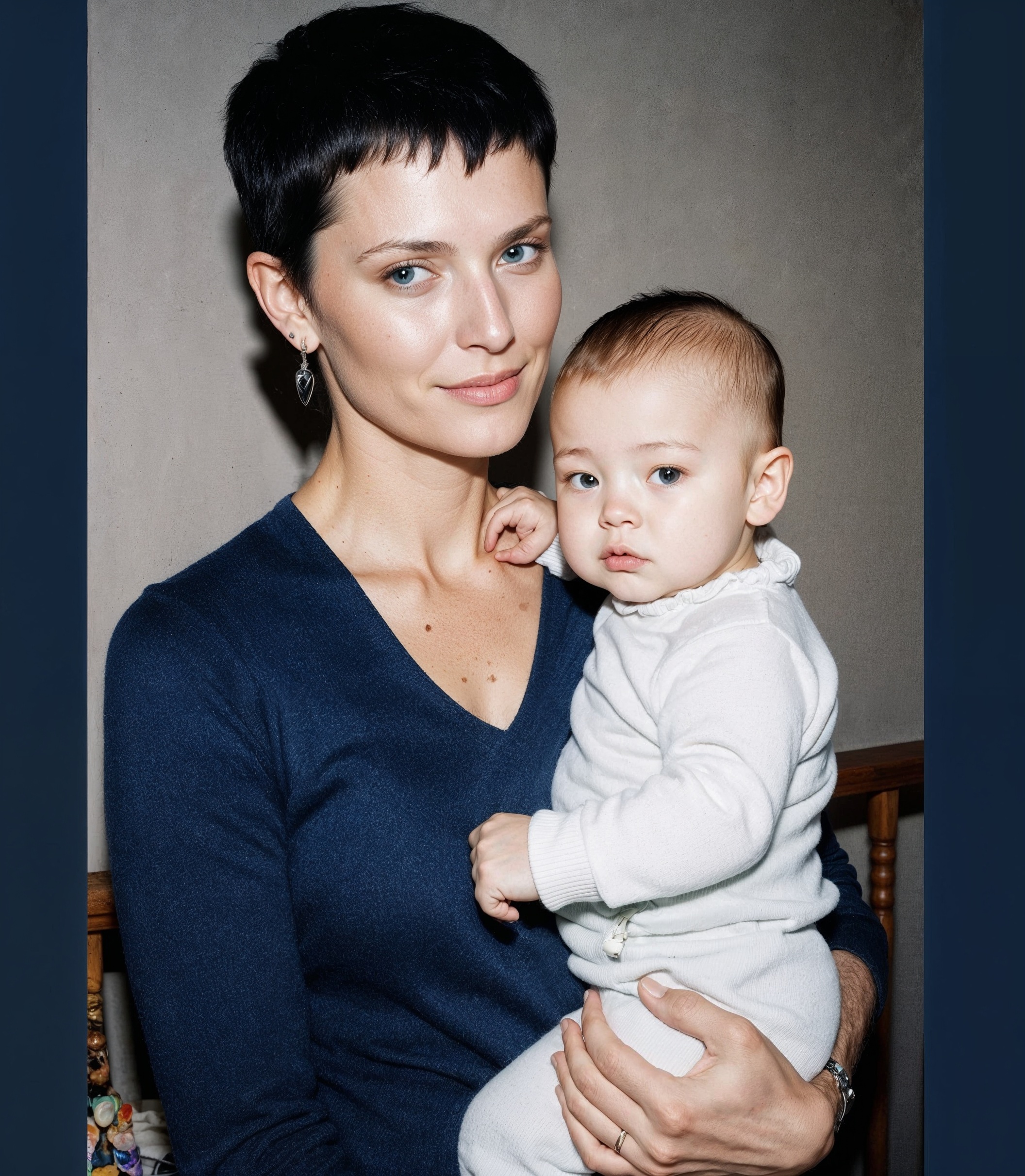She… smiled.
Right there, in the cold corridor of the children’s hospital, with the sound of oxygen machines and hopelessness buzzing all around, Kseniya Titova smiled at me — a frail, blue-tinged bundle of bones and breathing tubes. The nurse tried to temper her expectations, mumbling something about “a difficult case,” about “long odds.” Kseniya didn’t even blink. She reached for my tiny hand through the incubator’s porthole, brushed her thumb gently over my paper-thin skin, and whispered:
“Hi. I’m your mom.”
That’s when it all began.
She brought me home to a small, drafty apartment in the outskirts of Kazan. Our world was filled with inhalers, humidifiers, stews made with lentils and love, and Kseniya’s steady voice reading fairy tales late into the night. We didn’t have much — but what we had was fierce, bright, and stubborn.
My lungs wheezed. My bones ached. But Kseniya believed I was more than a diagnosis. “You’re a fighter,” she’d say. “Your body may need help — but your spirit doesn’t.”
Doctors said I shouldn’t run. So I walked. Then jogged. Then ran when no one was looking. Kseniya didn’t stop me. She watched — quietly, worriedly — but never stopped me. Instead, she got a job tutoring after hours just to afford a treadmill so I could run indoors during the winter.
When I turned eleven, she bought me a second-hand pair of running shoes. The toe was scuffed and the laces didn’t match, but I ran in them until the soles wore thin. She was there at every school meet, clutching a thermos of tea, her scarf flapping in the wind, her voice rising above the crowd: “Go, my lionheart!”
By fifteen, I’d broken regional records. By nineteen, I was on the national team.
But I was still Kseniya’s daughter first. Every championship, every medal, every press conference — she was behind the curtain, backstage, standing beside me without ever needing to be seen. She sewed lucky charms into my uniforms. She packed lavender in my bags so I wouldn’t forget the scent of home. She sent me voice messages before each race, whispering: “Run free, my lionheart.”
When I stood on the Olympic podium, gold medal trembling in my hands, they asked me who inspired me most.
I didn’t say a coach, or a national icon, or a rival.
I said, “A woman who adopted a sick baby and never once asked, ‘Why me?’ Only, ‘What can I do for her?’”
I looked into the camera, tears choking my throat, and said, “Mama, this is ours.”
After the ceremony, when the applause faded and the reporters drifted off, I found her sitting by the athlete’s village fence, a thermos in hand.
“You did it,” she said softly, eyes shining.
“No, we did,” I replied.
She shook her head and whispered, “I still think I’m the luckiest one.”
And I finally understood: love like hers never keeps score. It just gives — endlessly, silently, with open hands and open arms.
